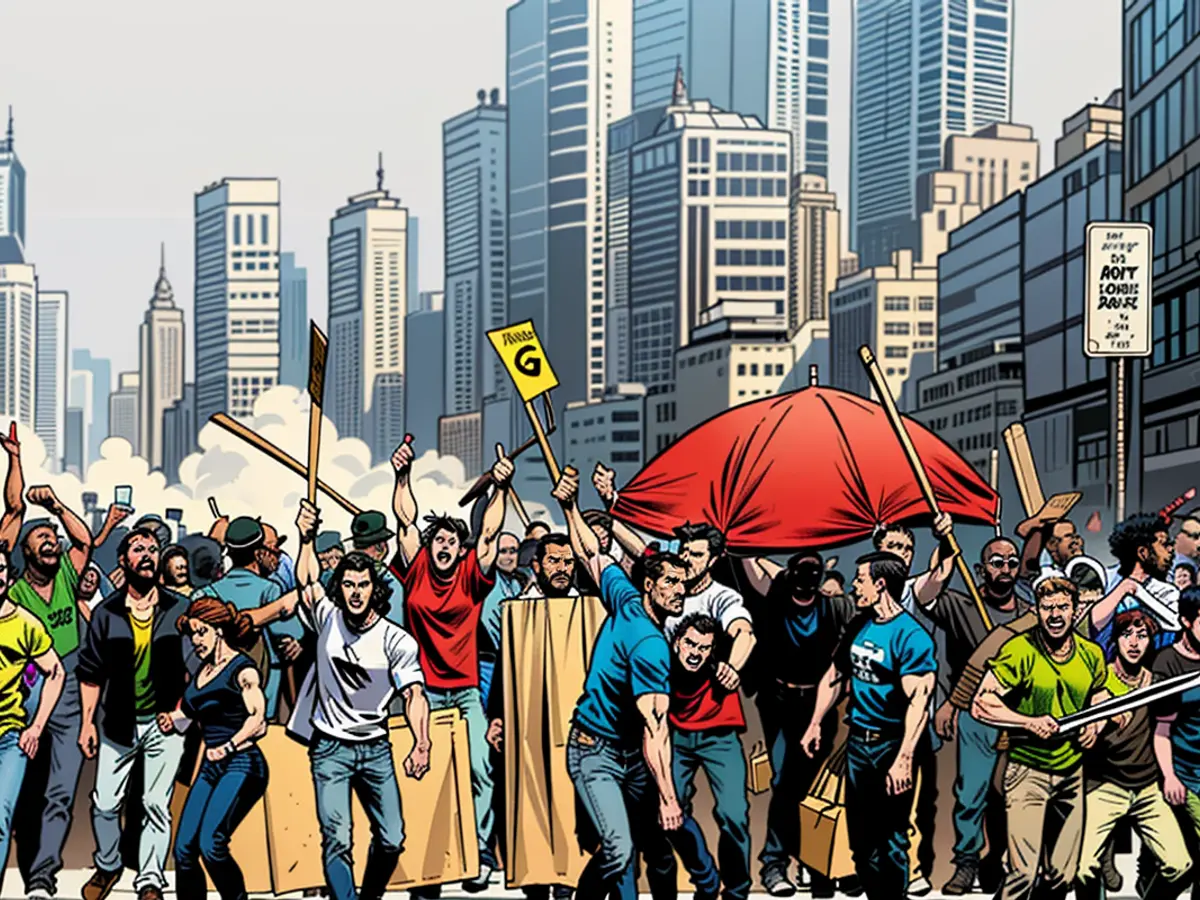Collisions - Student protests in Bangladesh: Troops deployed
After Clashes between Demonstrators and the Police during Student Protests in Bangladesh, the Government is now deploying the Army nationwide. The Military made this known. Since the violence began on Tuesday, over 100 people have died in the protests - at least 56 on Friday, reported BBC Bangla, among other sources, citing newspapers "Prothom Alo" and "The Daily Star".
Latest reports from local media were not accessible online on Saturday. The government had largely cut off Internet, phone, and SMS connections. The death toll was not officially confirmed. The US Embassy in Bangladesh reported hundreds to thousands of injured.
In Dhaka, all demonstrations were banned indefinitely on Friday, according to "Prothom Alo", citing the Police. However, protests still took place. The Police used tear gas, rubber bullets, and sound grenades. Protesters had set vehicles, shops, and offices on fire, reported a correspondent of the German Press Agency on site.
Student leaders reportedly met with government representatives on Friday night. However, there was no information about the results, reported BBC Bangla. On Saturday, soldiers were mainly seen on the streets. The website of the Bangladesh government seemed to have been hacked. It read: "Stop Killing Students" and "This is no longer a protest, it's a war".
Demand for Performance instead of Quotas
The ongoing demonstrations since early July target the possible reintroduction of an old quota system. It reserves more than half of the public sector jobs for specific groups - for instance, for descendants of soldiers who fought for the country's independence in 1971, for women, and for people from impoverished areas.
Thousands of young people, however, demand a system based on merit. In this country of over 170 million inhabitants, unemployment and inflation are high. On Thursday, the government signaled readiness for reform and for talks.
The quota system reportedly benefits supporters of Prime Minister Sheikh Hasina and her Awami League. The government, in turn, accuses a section of the opposition Bangladesh Nationalist Party of instigating the violence during the protests. On Friday afternoon, the Police arrested a key opposition politician, Ruhul Kabir Rizvi.
- Despite the government's ban on demonstrations in Dhaka, students continued to protest, using SMS messages to coordinate their actions, bypassing the internet and phone restrictions.
- The BBC reported on Saturday that the collision between protesters and military vehicles in Dhaka had resulted in several injuries, adding to the growing tally of casualties.
- The Student Protest against the quota system in Bangladesh has garnered international attention, with the BBC, Daily Newspapers, and even the US Embassy reporting on the escalating violence and turbulence.
- The BBC cited Daily Newspapers Prothom Alo and The Daily Star, which both reported on the Police's use of force against demonstrators during the Student Protest, leading to deaths and damage to property in Dhaka.
- In response to the ongoing Student Protest, the military has issued a collaboration request to local news agencies, including the BBC, for direct reporting on the situation in Bangladesh, bypassing the censored government-run media outlets.








